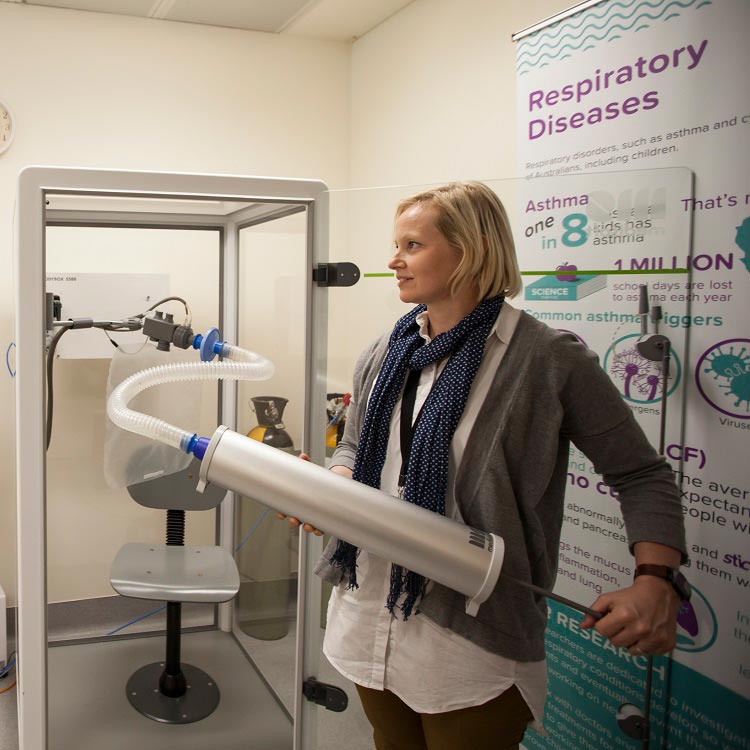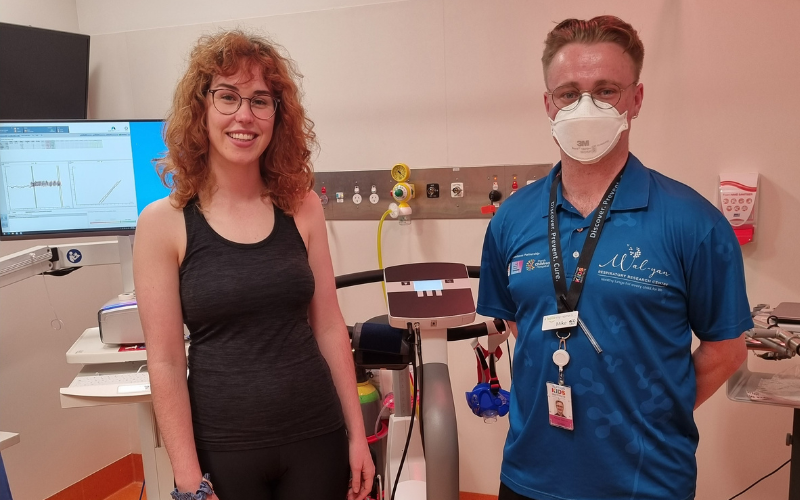Search
Showing results for "early lung health"

News & Events
Very preterm babies at risk of declining lung function throughout childhoodA The Kids Research Institute Australia study published in The Lancet Child & Adolescent Health has found that survivors of very preterm birth face declining lung function
Research
Reference values for spirometry and their use in test interpretation: A Position Statement from the Australian and New Zealand Society of Respiratory ScienceThe ANZSRS recommends the adoption of the Global Lung Function Initiative (GLI) 2012 spirometry reference values throughout Australia and New Zealand
Research
Reference values for spirometry and their use in test interpretation: A Position Statement from the Australian and New Zealand Society of Respiratory ScienceThe ANZSRS recommends the adoption of the Global Lung Function Initiative (GLI) 2012 spirometry reference values throughout Australia and New Zealand

News & Events
Thumbs up from first preterm study participant to use new lung function testing equipmentNatasha, who is a participant in the West Australian Lung Health in Prematurity (WALHIP) study, this week became the first person to receive a lung health assessment using new state-of-the-art lung function testing equipment at Perth Children’s Hospital.
Research
Children’s regenerative and genetic medicine programThe project aims to build capacity in regenerative medicine for children with respiratory diseases.
Research
Implementation of a strategy to facilitate effective medical follow-up for Australian First Nations children hospitalised with lower respiratory tract infections: study protocolFirst Nations children hospitalised with acute lower respiratory infections (ALRIs) are at increased risk of future bronchiectasis (up to 15-19%) within 24-months post-hospitalisation. An identified predictive factor is persistent wet cough a month after hospitalisation and this is likely related to protracted bacterial bronchitis which can progress to bronchiectasis, if untreated.
Research
Mucopolysaccharidosis (MPS IIIA) mice have increased lung compliance and airway resistance, decreased diaphragm strength, and no change in alveolar structureMucopolysaccharidosis type IIIA (MPS IIIA) is characterized by neurological and skeletal pathologies caused by reduced activity of the lysosomal hydrolase, sulfamidase, and the subsequent primary accumulation of undegraded heparan sulfate (HS). Respiratory pathology is considered secondary in MPS IIIA and the mechanisms are not well understood.
Research
WALHIP Exercise StudyWhen babies are born early or ‘preterm’ their tiny bodies are put under a lot of stress that can result in health problems in later life.
Research
Lung function in a model of a paediatric metabolic diseaseAlexander Larcombe BScEnv (Hons) PhD Honorary Research Fellow Honorary Research Fellow Associate Professor Alexander Larcombe began work at The Kids
Research
No role for neutrophil elastase in influenza-induced cellular recruitment, cytokine production or airway hyperresponsiveness in micePrevious studies have suggested that in vitro modulation of neutrophil chemokines and inflammatory cytokines by neutrophil elastase (NE) does not translate to t
